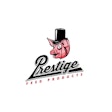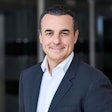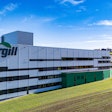
Mark Lyons also discusses the company’s Planet of Plenty mission, which promotes collaboration in providing food for the world’s population while preserving natural resources.
Alltech CEO talks animal feed trends, travel, partnerships (10:17)
Ann Reus: Hello and welcome to the Feed Strategy podcast. I’m your host, Feed Strategy senior reporter Ann Reus.
I recently spoke with Mark Lyons, president and CEO of Alltech, about regional trends in animal feed production, return to travel, the importance of partnerships in the industry and more. We also spoke about Alltech’s Planet of Plenty mission, which Lyons launched in 2019 to promote collaboration in providing food for the world’s population while preserving natural resources.
Here’s our conversation.
Hi Mark, thanks for being here. It’s good to have you.
Mark Lyons: Yeah, it’s fantastic to have the opportunity.
Reus: The 2023 Alltech Agri-Food Outlook came out recently. Can you give me some of your insights into what the survey found?
Lyons: Yeah, so what was interesting here, I think, was really that we saw something that a lot of us in the industry had reflected on was really the resilience of the industry throughout a very difficult time. 2022, we had not only the, I think, end of, I suppose, the pandemic impact, but we also have a lot of disruption in terms of supply chain. And we had a lot of dynamics in terms of what was taking place, you know, with the Russian war and the invasion of Ukraine. And so, you know, that really threw businesses into a lot of turmoil in the year that people were really anticipating a little bit of a semblance of return to normality.
So we could see them in the numbers, and we could really see, I think, a shift that we probably had anticipated for a number of years of regionalization of food production, strong growth in the Middle East, I think a lot of places that are really looking at their supply chains and thinking, how they continue to build up, if it’s not domestic food production, it’s regional. And so that was a that was a big theme I think that we saw, at the same time, a continuation of several themes that we’ve seen in our last few years of continued growth in aquaculture, pet food, performing extraordinarily well. And, in overall growth still in the sector, and many areas that are going to continue to grow in the future.
Reus: I’m sure you’re glad to see travel making a comeback. What have you learned from the Agri-Food Outlook and from your recent travels that highlight some of the regional trends in animal feed production?
Lyons: Yeah, it’s been phenomenal to get back to traveling. I think for a lot of us, we spent the pandemic saying, we’re going to do it all differently and we’re going to travel in a different way, or we’re not going to travel as much. And it seems like, at least for me, and I think for a number of other people, it almost seems like it’s really back with a vengeance and probably traveling as much as ever. I’m actually heading off this week for a trip to Asia, I’ll be over there for a couple of weeks. And I have three days here, I think before going to Europe for another two-three-week trip. So you know, it’s been great to get out, I think there’s such a hunger to reconnect.
This is a business that is a people business. And those relationships are so critical. And I think when you start to reconnect, you realize what we lost. And I think that’s what’s fueling people’s interest in reconnecting, and it’s one of the reasons we’ve actually decided to do something a bit different this year with our ONE Conference, we actually took the program on the road, and so we’re going to be doing a number of stops in lots of different locations, so that we can be out. Because I think the other thing that I’m noticing is really anxiety, a little bit of anxiety of where we’re going, we’ve been talking a lot around some of the aspects of, of where the industry is changing things that we can anticipate for the future and certainly this regionalization and perhaps this anticipation of future conflict is something that’s on people’s minds. So those kind of twin reasons were one of the thoughts we had of really needed to be out and connecting with folks.
I would say, I had the opportunity to get to Turkey, and our hearts go out to the victims of the of the earthquake and then terrible, again, to hear of another one hitting after the twin earthquakes a couple of weeks ago. And that was a place that you could really see a lot of dynamics going on, then, into the Middle East, Northern Africa, markets that I think are really places with a lot of energy and a lot of excitement to grow for the future, perhaps that we’re not seeing as much when we look at Western Europe, with the Green Deal. A lot of, I would say, negative feelings there in terms of animal protein production, even though it’s highly efficient and sustainable in those areas, is under pressure. And then perhaps, I would say in in the U.S. context, a lot of questions around where we’re going to fit in terms of the global food system.
Reus: What are some challenges and opportunities for feed producers right now?
Lyons: You know, I think that one thing that we are really emphasizing is, I think there’s a massive opportunity around the sustainability story. If we can really get measurement around some of the things that we’re doing, not just the impact that we have in terms of overall emissions, but also what’s really happening within the overall system. I think there’s a tremendous environmental story there. And something that I think those that move quickly and those who move with intention and well can really look forward to as a way to monetize, in a lot of ways, the good things that they’re doing. And, why do we say that? It’s been a real focus for us for a long, long time to say, we need to think of this not just as the animal but also the entire system, and all of the totality of that, and particularly in the beef and dairy space, I think we’ve got a massive opportunity.
We are continuing to expand on the research that we announced last year at our ONE Conference that really showed that we are capturing more carbon in the soil with animals on our land than without. In some of the cases that we have, we’re capturing 30-50% more carbon than the animal is emitting. So looking at that as a balance and replicating that, I think it’s going to be an opportunity, it’s probably is something that’s a little bit more of a two-to-three-year project, and then scaling from there. But I think it’s something that we’re seeing a lot of opportunities around. At the same time, I’d say partnerships. I’m sensing a lot more connection across the chain. And I think the more that we can do that, and really align with those suppliers we have, and those customers we have truly as partners, I think those businesses that are moving in that direction today are going to succeed in the coming years. I think without that resilience, and those connections and partnerships, I think it’s going to be difficult to do business as we used to do it.
Reus: So, all that said, what do you think will be some of the top trends in feed production throughout 2023?
Lyons: So I think we’re going to continue to see growth in the poultry and the aqua space. We continue to see these as areas that are going to outperform, particularly, as we start to think about, sort of the faster-developing nations, that’s going to be a very strong area to underpin. I think with a lot of the other areas where we probably haven’t seen as positive growth, thinking maybe of dairy of beef, in the pig industry, the pork industry kind of falls a little bit in the middle. Those are all areas where I think we’re going to see a need to differentiate, to tell a better story, to really think about what consumer attributes you can put towards your product, but I also would say in many of those cases, we are seeing feed costs, and feed input costs going down. And I think the key aspect there is going to be, in many of the segments, we have seen high prices, and how long can those high prices be maintained? A lot of that is going to come down to the story we tell and the way we differentiate our products. So that’s going to be a key element for us going forward.
Reus: Can you talk about Alltech’s Planet of Plenty mission and maybe share a favorite story or two about the role of feed and sustainability?
Lyons: Yeah, absolutely. So, in 2019, we launched our Planet of Plenty mission. And I often say to the team, focusing on a partnership side that the words before that, working together, are as impactful and important as the Planet of Plenty. The Planet of Plenty is all based around our idea that our industry, agrifood, can have the most positive potential impacting the future of our planet. And we see that through the primary mission that we have as an industry, which is to provide the appropriate nutrition to our growing planet.
At the same time, we need to do that through creating new economic opportunities, and also reducing environmental impact. And so, those three elements kind of come together. And we see feed being such a critical role of this. We can be providing the right nutrition to our animals, we can provide the right nutrition to our populations, and increasingly, we know that feed is such a big cost in terms of everything that’s going into that chain, in certain cases, 60-70% of our total cost is tied up and feed, so how we use that feed is really important from an economic perspective, but also from an environmental perspective, as we can improve the ability to convert those grains into meat, milk and eggs, and fish. Those are areas where we can really see that we are equally reducing emissions, we’re equally reducing a lot of the inputs that we’re going to need on our land.
And we switch over and start talking about our crop science business. That’s an area where we are increasingly using and leveraging our understanding of microbiology, the microbiome, to actually require a lot less inputs into agriculture, which has a huge reduction in our overall emissions and our overall environmental impact. So, I suppose, it’s like a lot of these things, as soon as you start on a mission, everything you see kind of ties into it, and it’s very difficult for me to see situations and have conversations where I don’t see a Planet of Plenty opportunity. And, and it’s wonderful that I think this idea from 2019 to today has really been taken on by our team and something that they really put their arms around.
Reus: All right, great. Thanks, Mark, for taking the time today.
Lyons: Yeah, thank you so much.
Reus: And thank you for listening to this podcast. I’m Ann Reus for Feed Strategy.















